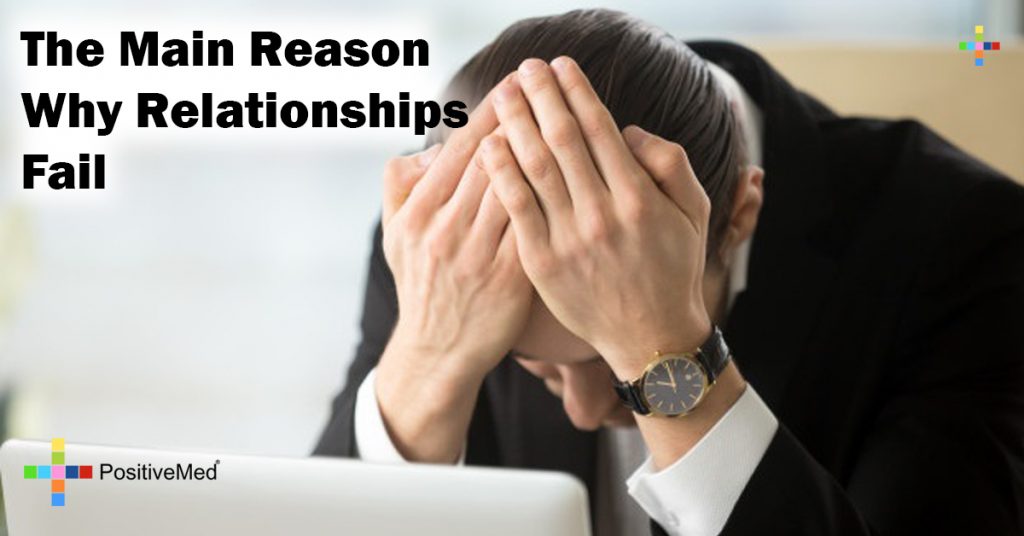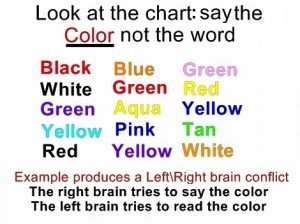
The Main Reason Why Relationships Fail; And What to Do about It?
Margaret Paul, Ph.D.
The current divorce rate says it all: 41% for first marriages, 60% for second marriages, and 73% for third marriages (http://www.divorcerate.org/). There is a very good reason why second and third marriages fail even more often than first marriages, and why so many people keep moving from relationship to relationship.
We take ourselves with us wherever we go. Just because we leave a relationship doesn’t mean we leave behind our contribution to the relationship failure.
It’s easy for many people to point the finger at their partner, blaming him or her for the failure of the relationship. But relationships are always a system, with each person contributing equally to the healthy or unhealthy system.
We attract each other at our common level of woundedness or our common level of health.
What does this mean?
Our level of woundedness is the degree to which we abandon ourselves, and our level of health is the degree to which we love ourselves by taking responsibility for our own self-worth, safety and happiness.
The major reason so many relationships fail is SELF-ABANDONMENT.
As children, many of us felt unbearably lonely, heartbroken and helpless over ourselves and others. These very painful feelings were way too big for our little bodies, so we learned to avoid them with various forms of self-abandonment. We HAD to learn to do this, but now these self-abandoning survival mechanisms are not only creating our relationship problems, they are also creating our anxiety, depression, guilt, shame, anger and various addictions.
Self-Abandonment – how do you abandon yourself?

When you abandon yourself, you likely do it in one or more of these four ways:
• You stay focused in your head.
Staying in your head, rather than being present in your body with your feelings, is a habit many of us learned as children to manage the big feelings that were too painful for us to manage any other way.
• You judge yourself.
Many of us were harshly judged as children and we may have absorbed these judgments. In addition, judging ourselves by telling ourselves we are not good enough, and making others’ rejecting behavior toward us our fault (because we are not good enough), is a way to attempt to have control over getting love and avoiding the pain of rejection. We hope that if we reject ourselves first, then others will not reject us. We may be operating from the false belief that we can control others’ feelings and behavior toward us by acting ‘right,’ and we hope to motivate ourselves into acting right by judging ourselves. You might believe that judging yourself motivates you to do better. In truth, it only perpetuates your feeling badly about yourself. When you judge yourself, you may create feelings of anxiety, depression, guilt, shame, anger, and on an unconscious level, you might prefer these feelings to the loneliness, heartbreak and helplessness over others that may occur when others are unloving and rejecting.
• You turn to various addictions .
Turning to substance addictions such as food, nicotine, alcohol and drugs, and to process addictions such as TV, work, spending, internet, porn, anger, care-taking and so on are all ways of numbing and avoiding responsibility for your feelings.
• You make your partner responsible for your happiness and self-worth
Once you abandon yourself and make your partner responsible, then you try to control your partner into giving you the love and attention that you are not giving to yourself. You might try to control with anger, blame or giving yourself up. Your partner might respond with anger, withdrawal or resistance.
In time, with each of you abandoning yourself and trying to control each other, the love that was once there gradually diminishes, until you are so miserable that you decide to end the relationship.
Then, of course, unless you learn to love yourself rather than continue to abandon yourself, you will create the whole system again in your next relationship.
The key to stopping the cycle of failed relationships is to do your inner work to learn to love yourself, and to learn how to compassionately manage your painful feelings rather than continue to avoid them. Once you learn to give yourself the love, kindness, compassion, understanding, caring, tenderness and gentleness that you need, you will have broken your old relationship patterns and will be ready to create a loving relationship.
About The Author :
 Margaret Paul, Ph.D. is a best-selling author, relationship expert & Inner Bonding® facilitator. She has counseled individuals & couples since 1968. She is the author/co-author of eight books, including the internationally best-selling Do I Have To Give Up Me To Be Loved By You?, Healing Your Aloneness, Inner Bonding, and Do I Have To Give Up Me To Be Loved By God? She is the co-creator of the powerful Inner Bonding® healing process, recommended by actress Lindsay Wagner and singer Alanis Morissette, and featured on Oprah, as well as on the unique and popular website Inner Bonding & of the transformational self-healing/conflict resolution software program, SelfQuest®. Click here for a FREE Inner Bonding course.
Margaret Paul, Ph.D. is a best-selling author, relationship expert & Inner Bonding® facilitator. She has counseled individuals & couples since 1968. She is the author/co-author of eight books, including the internationally best-selling Do I Have To Give Up Me To Be Loved By You?, Healing Your Aloneness, Inner Bonding, and Do I Have To Give Up Me To Be Loved By God? She is the co-creator of the powerful Inner Bonding® healing process, recommended by actress Lindsay Wagner and singer Alanis Morissette, and featured on Oprah, as well as on the unique and popular website Inner Bonding & of the transformational self-healing/conflict resolution software program, SelfQuest®. Click here for a FREE Inner Bonding course.





